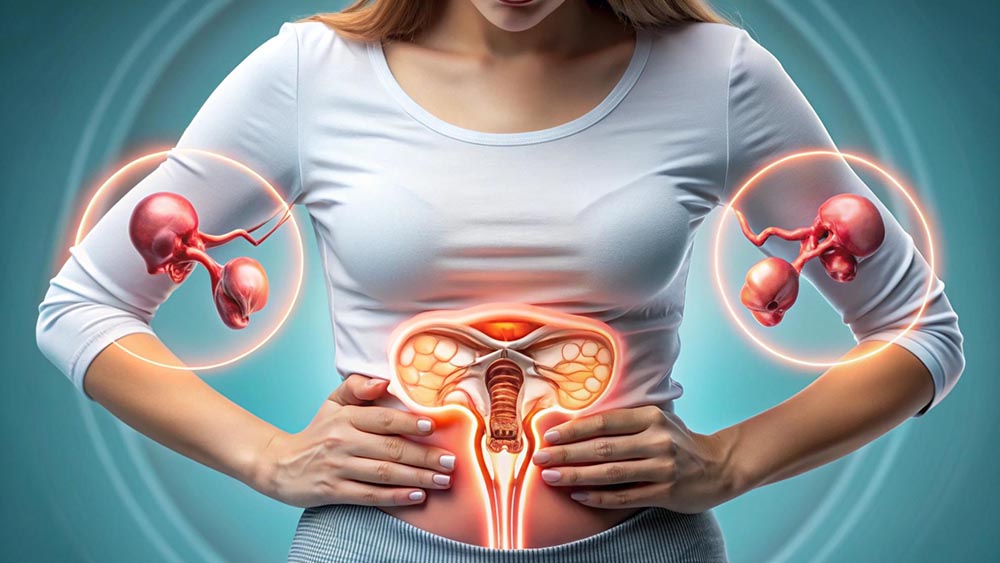What is PCOS?
PCOS is a condition arising because of an imbalance in reproductive hormones. In this condition, the particular women usually have higher than normal levels of androgens that inhibit the development and release of eggs from ovaries. This may develop into haphazard periods or none at all, and cysts may form on ovaries, which generally are small, fluid-filled sacs.
Though the exact cause of PCOS is not known, it also involves contributions from genetics and lifestyle factors.
Symptoms of PCOS
- Irregular periods: One symptom that proves quite common with PCOS involves missed periods or irregular menstrual cycles due to the ovaries not being able to release an egg on a normal, timely basis.
- Excess hair growth: The extra quantity of androgens may lead to the growth of excess hair, including facial, chest, and back hair.
- Acne: Oily skin and acne are symptoms, most often on the face, chest, and upper back.
- Weight gain: Gain in weight, particularly in the abdomen, is one of the major complaints among women affected with PCOS.
- Hair thinning: Thinning of hair and sometimes bald patterns also appear in cases of hormonal imbalance.
- Darkened skin: Some develop dark patches of skin around the neck, groin, or under the breasts.
Complications of PCOS
- Infertility: This can be marked as one of the major causes of infertility because the irregularity in ovulation may disturb conception.
- Type 2 diabetes: Insulin resistance may increase the future risk for type 2 diabetes in women suffering from PCOS.
- Heart disease: One of the conditions that women can be at risk with is heart disease, especially when combined with related factors such as obesity, high blood pressure, and high cholesterol.
- Sleep apnea: Most women with PCOS experience sleep apnea, especially overweight ones.
- Psychological problems: Anxiety, depression, and a factor of disturbance in body image are prevailing features among women suffering from PCOS due to hormonal imbalance and physical features.
Management of PCOS
-
Healthy Diet
A balanced diet with ample whole grains, fruits, vegetables, and lean proteins helps regulate weight, improves insulin sensitivity, and eases some symptoms of PCOS. Focus on food to be avoided, which includes those high in refined carbohydrates and added sugars that seem to magnify the effects of insulin. -
Regular Exercise
Regular exercises can help with weight reduction, enhancing sensitivity to insulin, and even regularization of menstrual cycles. At least 30 minutes of moderate physical activity is required on most days of the week. -
Weight Management
In overweight women, even minimal weight reduction, around 5-10% of the body's total weight, significantly reduces symptoms, normalizes menstrual cycles, and enhances conceiving ability. - Medications
- Oral contraceptives: First-line hormonal contraceptives regularize the cycle, decrease superfluous hair growth, and end acne.
- Insulin-sensitizing agents: The drug of choice is diabetes medication metformin, which enhances insulin resistance and leads to regular ovulation.
- Fertility Drugs: Clomiphene and letrozole can be administered to stimulate ovulation in females for conceiving a baby.
-
Psychological Problems Medication
PCOS is an emotionally debilitating condition to live with, and hence support should be inquired of whenever it may be needed or called for. Therapy, support groups, or talking with a healthcare provider about how to overcome anxiety and depression may provide overall welfare.
Conclusion
Living with PCOS might be cumbersome, but it is manageable with the appropriate approach: understanding the condition, modification of life, and seeking medical advice. This shall place you at the centre of managing your symptoms and reducing the risks of complications associated with it in the future.
Above all, however, is the need for regular follow-up visits with your health professional; this is basically because adjusting management can make your life healthy and fulfilling amidst the challenges brought about by PCOS.





